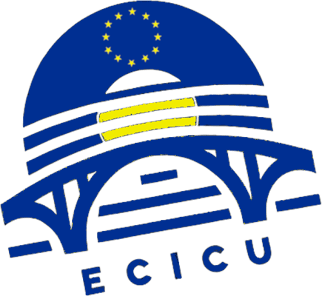Tolerance in Action: Lessons from European Diversity
Analyzes how Europe’s rich blend of cultures and religions has shaped tolerance initiatives over time, highlighting historical and contemporary cases that inspire collaboration.
2/12/20253 min read


Europe, a continent defined by its cultural and religious diversity, has been a melting pot for centuries where differences have coexisted—often in tension, but also as a source of inspiration for collaboration and peace. From ancient trade routes connecting civilizations to modern multicultural cities, the rich blend of traditions, beliefs, and languages has shaped initiatives of tolerance that offer valuable lessons for today’s world. This article explores how this diversity has given rise to historical and contemporary efforts to foster coexistence, highlighting key moments that illustrate the transformative power of dialogue and empathy.
A Historical Legacy of Encounters and Conflicts
European history is marked by a diversity that often led to religious and cultural conflicts, but also to early attempts at reconciliation. In the Middle Ages, for instance, the borderlands between Christian and Muslim kingdoms in the Iberian Peninsula became spaces of cultural exchange, where the three major monotheistic religions—Christianity, Islam, and Judaism—coexisted during periods of relative stability. Though these moments were not free of tensions, they left a legacy of architecture, literature, and knowledge that still resonates, showing how tolerance can emerge even in contexts of profound difference.
Later, in the 16th century, the religious wars sparked by the Reformation and Counter-Reformation tested Europe’s ability to manage its diversity. Yet, from these conflicts emerged agreements aimed at establishing practical coexistence. One early example was the acceptance that rulers could determine the religion of their territories, a principle that, while limited, marked a step toward tolerance by reducing large-scale confessional wars. This pragmatism reflected an early understanding that peace required accepting certain differences rather than enforcing uniformity.
In the 17th century, another milestone arose in the context of a monarchy facing internal divisions between Catholics and Protestants. A royal edict granted limited rights to a religious minority, allowing private worship and certain civil liberties. Though this act did not equate to full religious freedom, it acknowledged that total repression was unsustainable and that coexistence demanded compromise. These historical efforts, though imperfect, laid the groundwork for broader tolerance in the centuries that followed.
The Enlightenment and the Birth of Modern Tolerance
The 18th century marked a turning point with the Enlightenment, when European thinkers began advocating for tolerance as a universal value. In an era of revolutions and social change, the idea that individuals should be free to profess their beliefs without fear of persecution gained traction. Writers and philosophers from various countries argued that religious and cultural diversity was not a threat but a richness that could strengthen societies. This vision inspired legal and social changes, such as the easing of restrictions against religious minorities in several nations, and fostered a dialogue that transcended borders.
A notable case from this period occurred in a region where Jewish communities, previously marginalized, began to integrate more fully into economic and cultural life after centuries of exclusion. This process was neither uniform nor free of resistance, but it demonstrated how ideas of tolerance could translate into concrete actions, opening doors to collaboration that benefited all involved.
Contemporary Lessons: Diversity in Modern Europe
In today’s Europe, diversity has reached new heights due to migration, globalization, and the integration of communities of non-European origin. Cities have transformed into mosaics of cultures, where mosques, churches, and synagogues stand just streets apart. This reality has spurred initiatives of tolerance that aim not only to prevent conflict but also to celebrate plurality as an asset.
A contemporary example can be seen in responses to the challenges of integration. In various urban centers, local leaders have facilitated spaces where people of different faiths can come together to share their experiences, from joint celebrations to discussion forums. These interactions have helped dispel stereotypes and build networks of mutual support, showing that active tolerance—listening, learning, and collaborating—is more effective than mere passive coexistence.
Another inspiring case comes from regions that have faced historical tensions between ethnic or religious groups. Rather than ignoring past wounds, some communities have chosen to address them through dialogue, creating platforms where younger generations can learn from history and work together toward a shared future. These initiatives demonstrate that tolerance is not just a reaction to diversity but a deliberate choice to build bridges.
The Transformative Power of Dialogue
Both in historical and contemporary examples, one clear lesson emerges: dialogue is the heart of tolerance in action. Whether through agreements between warring kingdoms, philosophical debates that changed laws, or conversations in community halls, the willingness to listen and understand the other has been the catalyst for peace. In Europe, this approach has allowed diversity to transform from a source of division into an opportunity for collaboration.
European tolerance is not a finished state but an ongoing process. Challenges remain, from the rise of intolerant movements to tensions stemming from rapid globalization. Yet, the continent’s history and present offer a hopeful message: when communities choose dialogue over conflict, diversity becomes a unifying force. These lessons, rooted in centuries of experience, are not only relevant to Europe but serve as inspiration for an increasingly interconnected world, where tolerance in action remains essential for coexistence.
ECICU - European Center for Interreligious and Cultural Understanding
Promoting dialogue and understanding among communities.
ECICU
Empowering Unity Through Cultural Understanding
© 2009. All rights reserved.
+33 624 506 770
